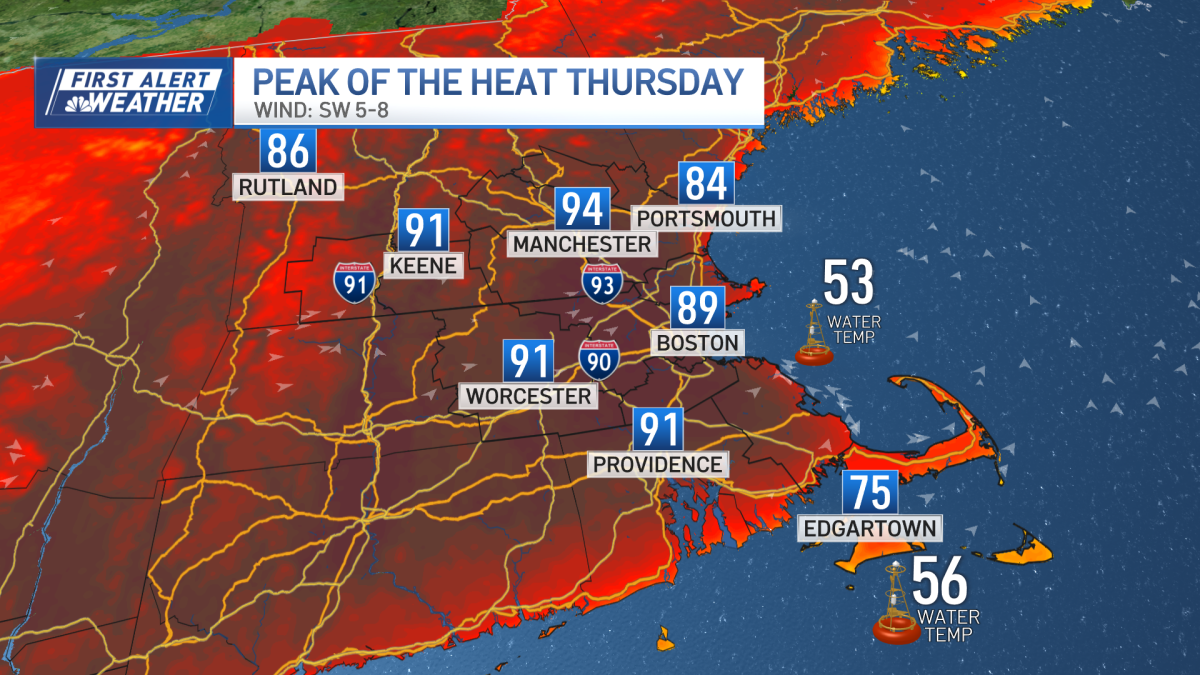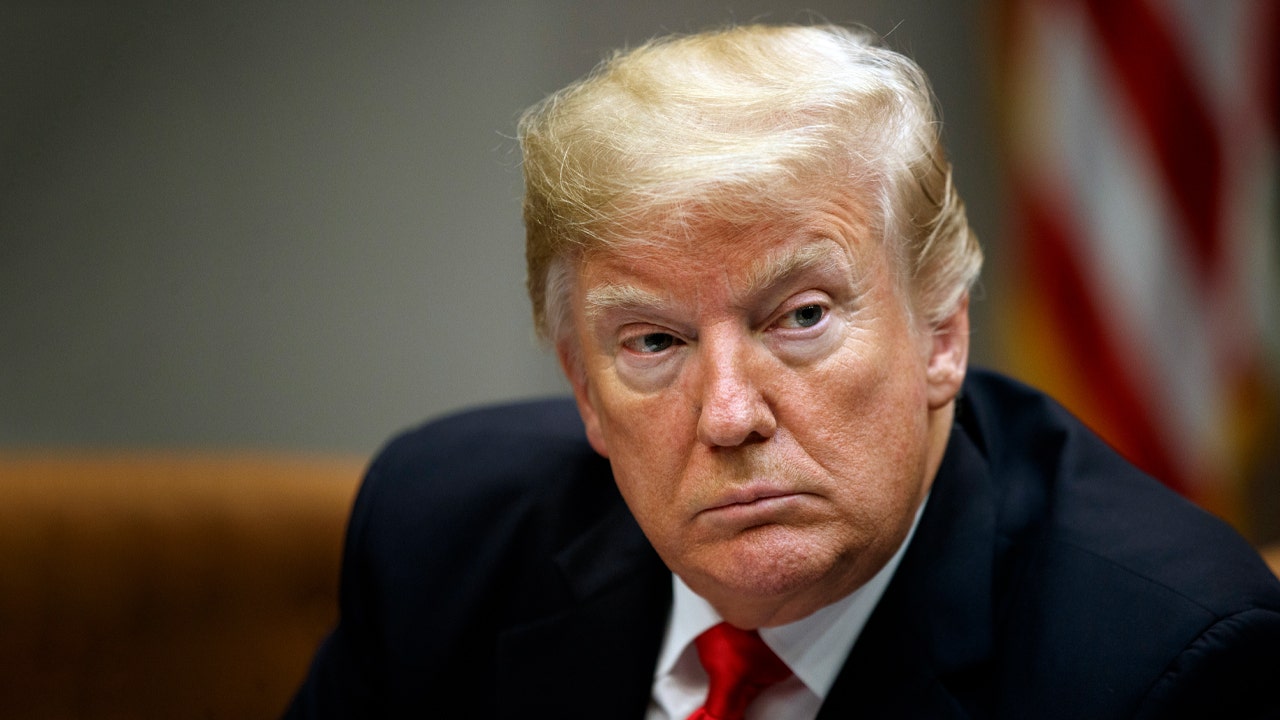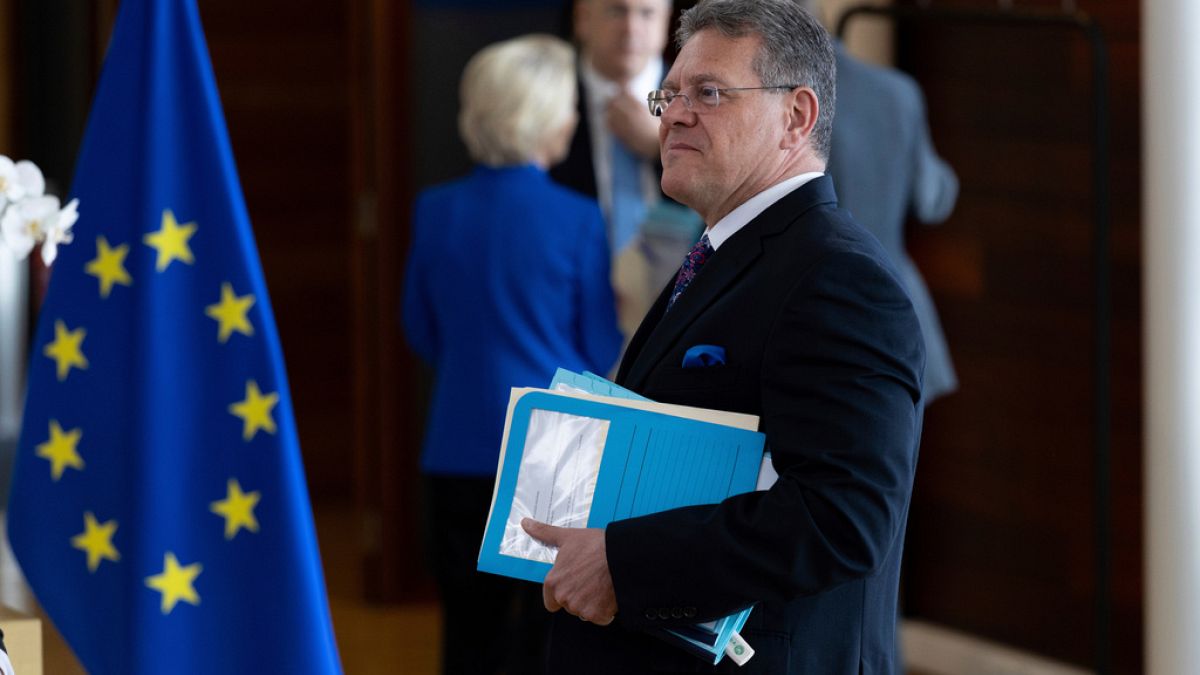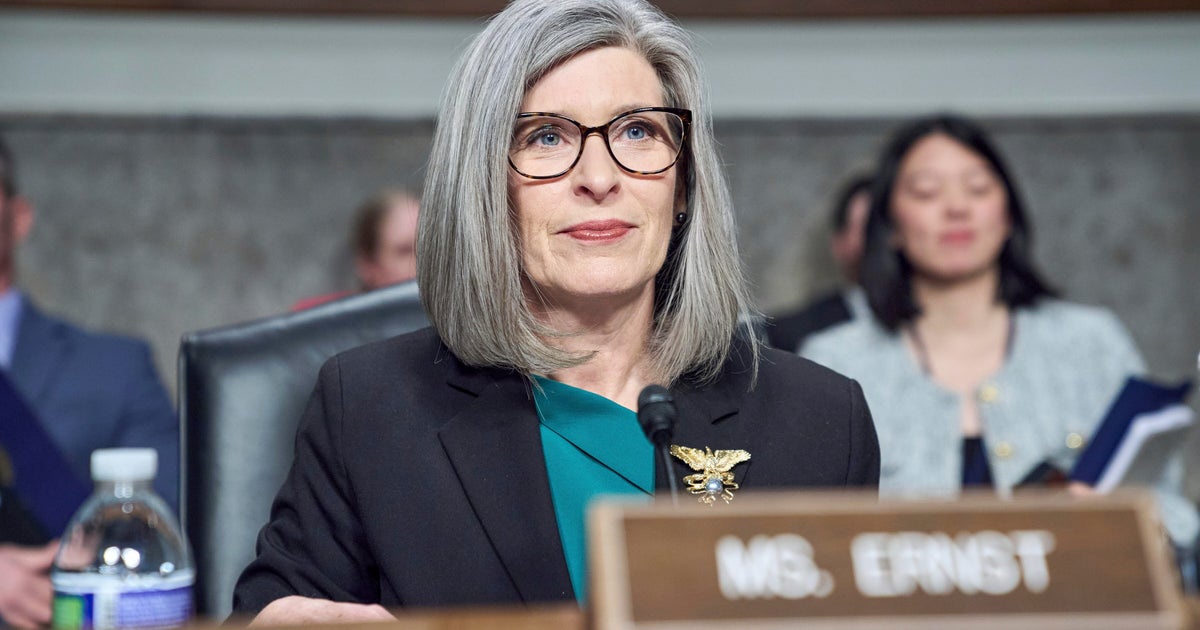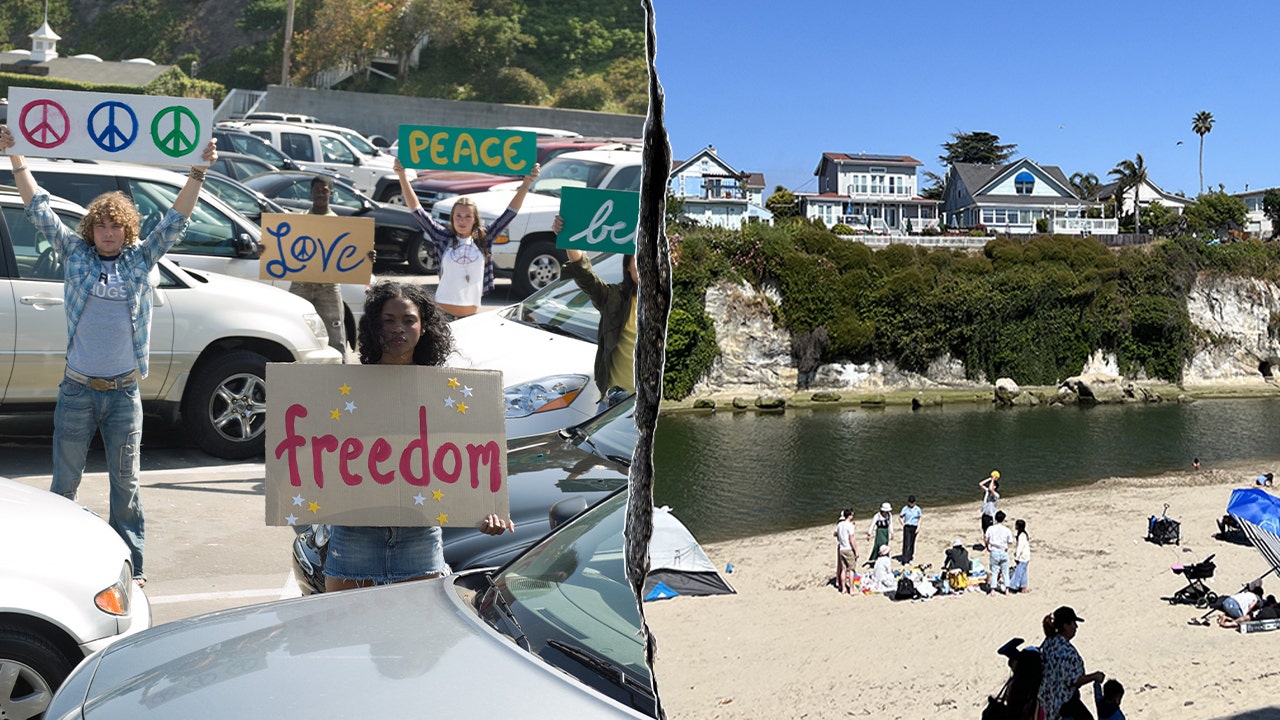Nevada
Dueling GOP presidential nominating contests in Nevada raise concerns about voter confusion

RENO, Nev. (AP) — Republicans in Nevada could have two chances next year to decide who they want to be their party’s presidential nominee. The catch: Only one will count.
The Nevada GOP is insisting on holding its own caucus despite a new state law calling for a primary election, a move critics say is designed to benefit former President Donald Trump. The competing contests are likely to confuse some and require GOP campaigns to spend extra time and money educating voters in one of the earliest states to cast ballots for the presidential nomination.
The results in the GOP primary are unlikely to matter because the state Republican Party has said it will use its party-run caucus to determine which candidate will receive the state’s delegates to the Republican National Convention. An official caucus date has not yet been set but is expected to be around the same time as the Feb. 6 primary, which falls after the Iowa caucus and primaries in New Hampshire and South Carolina.
“I do believe it’s going to create confusion among the voters,” said Tami Rae Spero, the state’s longest-serving county clerk who is based in rural Humboldt County, which leans heavily Republican.
Spero said she already is preparing a voter-education strategy that will include interviews with local news outlets and social media posts, although she’s not quite sure how to explain that the primary results may not matter in nominating a Republican presidential candidate.
It’s not the first time states and political parties have proposed dueling nominating methods. In 2016, Washington state spent $9 million on a meaningless primary after the state Democratic Party held its own caucus to determine a nominee and Trump’s Republican challengers had all dropped out by the time voters were scheduled to cast ballots.
Some state parties have even relied on multiple contests. For years, the “Texas Two-Step” featured both a caucus and presidential primary to divide delegates before it was discontinued before the 2016 election. A similar strategy is likely to play out next year in Michigan, one of several states where the Republican Party is controlled by Trump allies who have altered delegate rules in ways seen as favorable to the former president.
In Nevada, caucuses had been the preferred method until state Democrats pushed through a law in 2021 moving to a primary, a system that tends to get higher rates of voter participation. Primaries allow early voting and mail voting while using polling places that are familiar to voters.
A caucus has traditionally been limited to in-person participation, although parties experimented with alternative voting methods during the COVID-19 pandemic. While primaries are run by local election officials and paid for by the state, political parties are responsible for planning and administering caucuses.
With primaries, campaigns can rely more on TV ads to generate support. For a caucus, campaigns must organize their backers locally — from Las Vegas and Reno to Nevada’s far-flung rural communities.
Nevada Republicans had sought to block the primary, but a state judge last month denied the request. State Republican Party Chairman Michael McDonald said the Nevada GOP is considering other options to eliminate the presidential primary, including appealing the case to the Nevada Supreme Court.
McDonald has long been friendly with Trump and was among those who signed certificates falsely stating Trump had won Nevada in 2020. In a recent interview, he criticized Democrats for failing to consider Republican Gov. Joe Lombardo’s proposal to implement a voter ID requirement and said the party-run caucus was a “more pure process for the electorate to be involved in.”
“They have that opportunity to come and voice their opinions about their candidate, and also to hear about the other candidates,” he said.
Critics from both parties have said caucuses make it harder for many people to vote, particularly those who don’t have the time to spend hours debating their picks, work irregular hours or have limited English skills. Some said the tight-knit settings are ripe environments for groups to exert political pressure or even intimidate their opponents — although McDonald said caucus ballots will be private.
The Nevada attorney general’s office made similar points when arguing on behalf of the state’s top election official to defend the 2021 law in court.
Former Nevada GOP chair Amy Tarkanian, who helped organize the party’s 2012 caucus, cited a number of problems with a caucus system, including voters who are unable to participate or who can’t stay throughout the drawn-out process.
“We left a caucus for a good reason,” she said. “It was confusing.”
A frequent critic of the state party she once ran, she said she was disappointed to see Nevada pushing a nominating process that appears to benefit Trump.
McDonald said he has spoken to Trump’s campaign about the party’s effort to stop the primary, but said the team did not express a preference for one over the other. Trump’s campaign did not respond to requests for comment.
Zachary Moyle, a GOP strategist who was the state party’s executive director from 2006 to 2009, said a primary system is better organized. He said caucuses can be confusing for voters, especially those who are not as active, and have less stringent rules against electioneering.
While running then-Ohio Gov. John Kasich’s 2016 presidential campaign in Nevada, Moyle said GOP voters told him that many of those who were working the caucuses had hats, buttons and shirts supporting Trump. He called that an example of “indirect voter intimidation” that is a byproduct of a state party rather than election officials running the nominating process.
Still, Moyle cautioned against blaming the party for intentionally tailoring the election process to favor Trump.
While caucuses may have lower turnout and benefit the former president because of his campaign’s experience in 2016, he said the state party may have other interests in mind. The party runs the caucus, puts on its own events and decides how much each candidate must pay to be on the ballot.
“It’s the ability to be able to control the process, but it’s also a money process,” he said.
As the Nevada GOP considers its next steps to block the state-run primary, McDonald has helped lead an effort to educate conservative voters about the caucus, including media appearances, text notifications and community outreach.
Elaine Kamarck, a senior fellow at the Brookings Institution and an expert in the presidential nominating system, said a caucus ultimately boils down to the candidates themselves and how well they are able to organize and turn out supporters.
“It sounds like it would be massively confusing to the voters, but in practice it isn’t,” she said. “It’s in the interest of every single candidate to make sure voters know how to participate.”
___
Cassidy reported from Atlanta.
___
Stern is a corps member for the Associated Press/Report for America Statehouse News Initiative. Report for America is a program that places journalists in local newsrooms. Follow Stern on Twitter: @gabestern326.

Nevada
Last required budget bill heads to Nevada governor’s desk
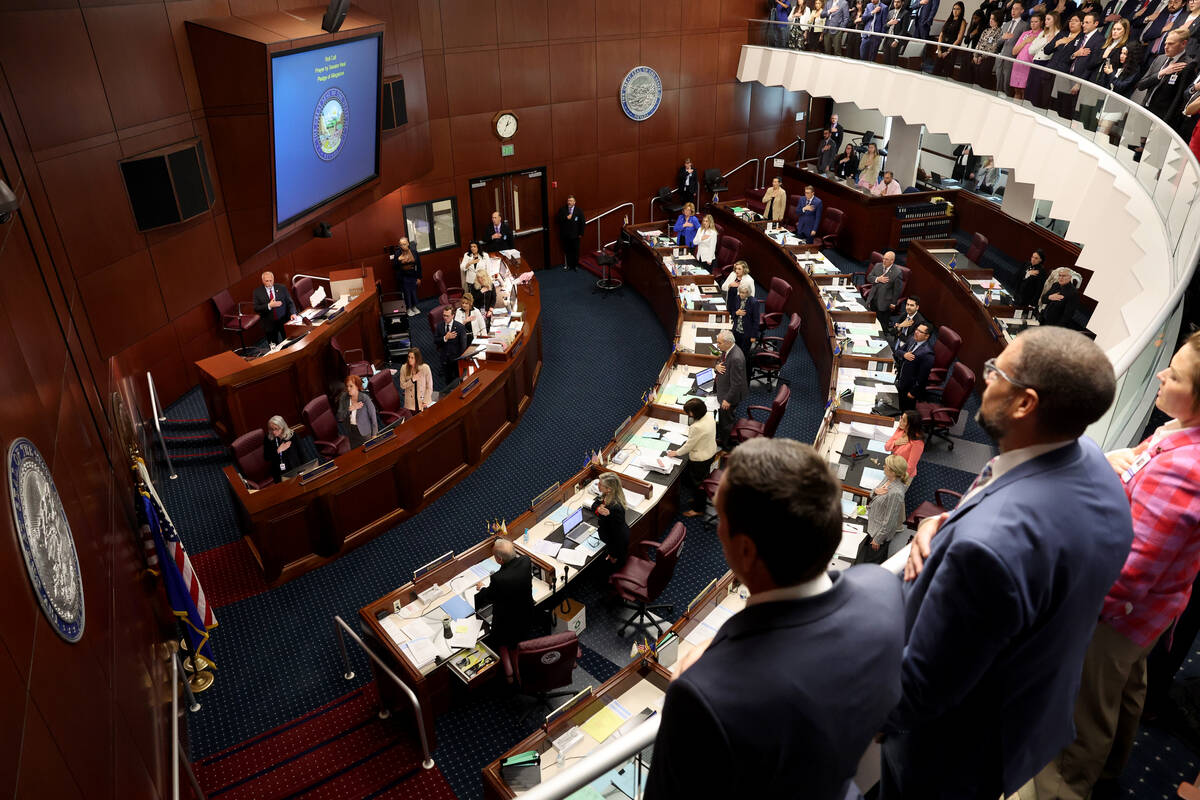
CARSON CITY — With less than half an hour until the end of the legislative session, lawmakers voted to send a budget funding capital improvement projects to Gov. Joe Lombardo’s desk — the last budget bill the Legislature is constitutionally required to pass.
Senate Bill 502 would pay for about $1.56 billion worth of projects, $1.1 billion financed through bonds.
It faced hurdles Monday after the Senate did not concur on an amendment that would have provided up to $50 million of general obligation bonds for attainable housing projects. The Assembly had first approved the amendment Sunday in a 38-4 vote, but it receded the amendment around 11:40 p.m., or else it would have faced going into a special session.
Before the housing amendment was removed, Assemblymembers Sandra Jauregui and Daniele Monroe-Moreno urged their colleagues to support the amended bill late Sunday night. It would have created the Nevada Attainable Housing Infrastructure Account for housing development projects. Up to $50 million of general obligation bonds would have been deposited in the account in the 2025-2027 biennium to be used for loans.
“With this amendment, we are keeping our promise to focus on affordable, attainable housing this legislative session,” Jauregui, D-Las Vegas, said Sunday night. “With the amendment, we are making sure that we are going to fund those projects that will help the affordability of housing in our state, and I want to thank the housing division and the executive branch for the hours that we have worked together to make this possible.”
Republican Assemblymembers Heidi Kasama, Danielle Gallant, Ken Gray and Jill Dickman voted in opposition Sunday.
In a statement, Kasama said she was concerned with structural deficits that were not resolved when the vote took place.
This is a developing story. Check back for updates.
Contact Jessica Hill at jehill@reviewjournal.com. Follow @jess_hillyeah on X.
Nevada
Nevada’s 83rd Session Closes TODAY: Stop These Bills Before They Become Law. Urge Governor Lombardo to Veto NOW! – Nevada Globe
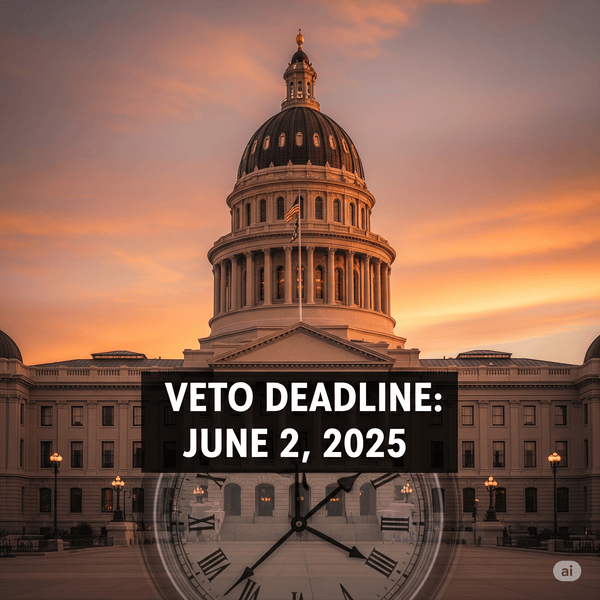
Today, June 2, 2025, the 83rd Nevada Legislative Session ends. Several key processes take place. Bills passed by both the Nevada Assembly and Senate during the session are sent to the Governor for approval. The Governor has five days to sign or veto bills if presented before the session ends, or ten days if presented after adjournment, excluding Sundays. Bills not acted upon within these timeframes become law without the Governor’s signature. The Legislative Counsel Bureau begins compiling and publishing the session’s statutes, updating the Nevada Revised Statutes to reflect new laws, which typically take effect on October 1, 2025, unless otherwise specified. This means we need to tell the Governor he needs to veto at least the following bills before they become law!
The NVGOP sent out this list:
They include this link here to send Governor Lombardo a prepopulated email; it only takes about 30 seconds to do. Send the Governor an email and tell him he needs to veto these before they become law!
https://nevadagop.org/advocacy/?vvsrc=%2fCampaigns%2f127420%2fRespond
_______________________________________
Speak Up, Nevada! What’s on Your Mind? Send us your opinion!
Got the inside scoop on something happening in Nevada? Or the country? Do you have thoughts about life in Nevada that are too good to keep to yourself? Whether it’s a hot take on our politics, crime, education, or even the secret to surviving our summers, we’re all ears! Swing them our way at editor@thenevadaglobe.com. Come on, give us the scoop on what makes Nevada tick—or what ticks you off. Let’s make some noise and have some fun with it!
Nevada
NEVADA VIEWS: Dousing the fire of innovation
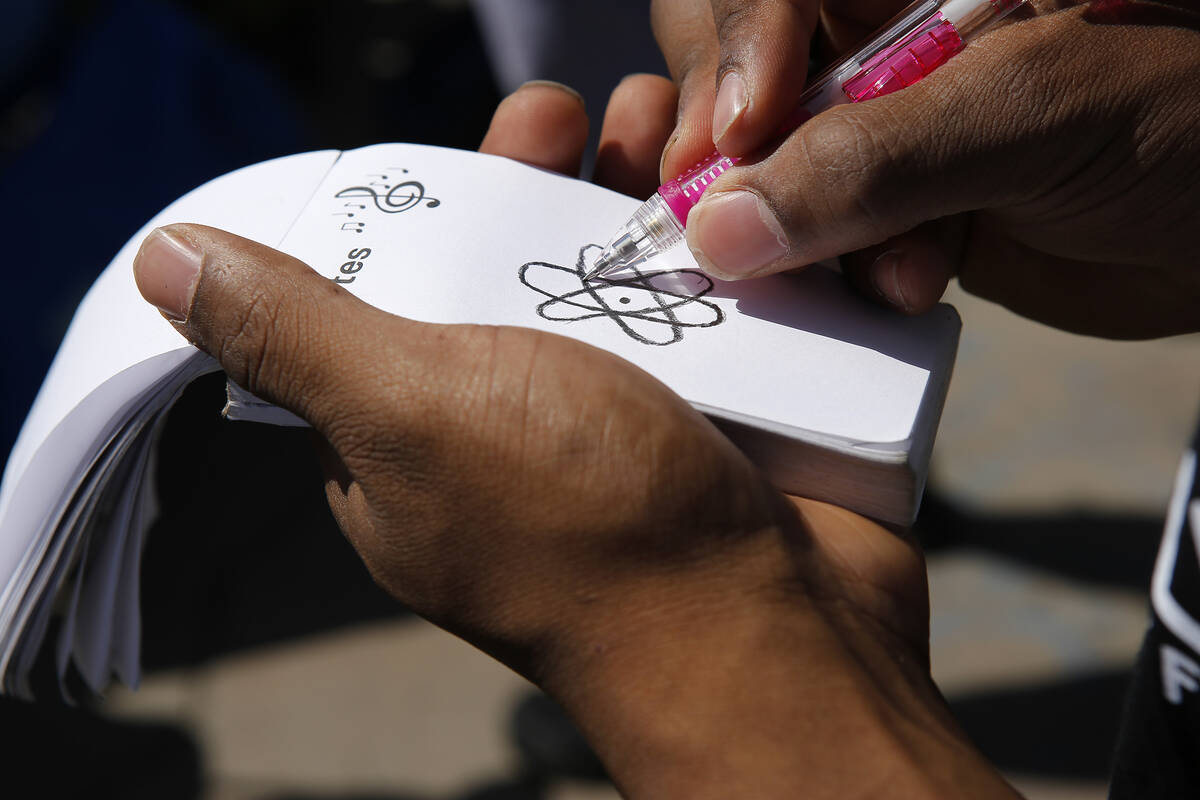
As a physicist born, raised and fully trained in the United States, I am concerned that the Trump administration has been severely defunding scientific research and universities that train the next generation of scientists and engineers. This effort comes at a time when America is $36 trillion in debt and needs to reindustrialize to produce more than it consumes.
We have myriad problems that only science can address — the adverse impact of climate change, food production, the quest for alternative energy sources, the decontamination of our poisoned ecosphere from PFAS chemicals, rampant cancers, safeguarding humanity from AI and natural resource management, for instance. China produces more STEM graduates per year than all U.S. graduates combined annually.
America is a superpower because of investments in science made in the 20th century — particularly after World War II. Some achievements from this funding include the transistor, integrated circuit and microprocessor, the bedrock of modern electronics that produced solar cells, cellphones, satellites, televisions and computers. The laser was invented here and is ubiquitous as a source of concentrated coherent energy. The blueprint of life (DNA) was discovered here and paved the way for gene machines/sequencers that were also developed here. Modern medicines (e.g., synthetic insulin) were made or discovered to help humans suffering from myriad ailments (e.g., diabetes), saving untold millions of lives.
Because of decades of government-funded research, our economy grew tremendously. Our health care has improved with myriad technologies such as MRI and PET scans and proton and radiation therapy, among many others. These miracles of modern medicine have unquestionably helped to steadily increase life expectancy in America.
Beyond this, our military has benefited greatly from STEM, as technological superiority has been the traditional means to win wars. America would never be able to project its power around the world without nuclear submarines, satellites, jet fighters, rockets/missiles, advanced tanks, etc. — all the result of decades of scientific research. Despite their obvious dangers, nuclear weapons have produced the longest period of relative peace in human history and their derivative (nuclear energy) produces a significant amount of our electricity.
Scientific research conducted in the public interest has made life more productive, healthy, comfortable and safe for all of us. Few Americans alive today have not benefited from the investments in science made decades ago to improve America’s standard of living.
Yet today, our leaders do not appear to understand just how vital support is for scientific research and the institutions that perform scientific research, which are largely universities. Universities also train future scientists and engineers. But because of funding cuts, the future of American science and properly trained American STEM professionals is threatened.
Persecuting and defunding universities and banishing foreign students (most of whom study STEM) will hinder our advancement. Where will America’s future scientists and engineers come from? Without scientists and engineers, America will have no future. Who will maintain and further develop nuclear energy? Who will continue the exploration of space and launching of satellites? Who will develop, design and build factories to reindustrialize America?
American technology is like a high-performance sports car. If you can’t train future engineers and technicians to understand, repair, improve and maintain it, the vehicle will soon become undrivable. You will be forced to reinvent the wheel. Knowledge is like a flame that is sustained by education.
Beyond this, China may soon overtake America economically. How will America compete with China when it is unable to innovate novel technologies because of defunding universities (which are repositories of knowledge and technical know-how)? How will we train sufficient engineers to translate scientific discoveries into economic and industrial reality?
Supporting science and higher education should be an apolitical issue. Defunding these pillars of America’s success will cause great harm by dousing the fire of innovation that has sustained, enriched and given hope to Americans for decades.
There is no better investment to make for America than to support science and higher education. This is what truly made America great.
Michael Pravica is a professor of physics at UNLV. He writes from Henderson.
-

 Business1 week ago
Business1 week agoPlastic Spoons, Umbrellas, Violins: A Guide to What Americans Buy From China
-

 Movie Reviews1 week ago
Movie Reviews1 week agoMOVIE REVIEW – Mission: Impossible 8 has Tom Cruise facing his final reckoning
-

 Movie Reviews1 week ago
Movie Reviews1 week ago‘Magellan’ Review: Gael Garcia Bernal Plays the Famous Explorer in Lav Diaz’s Exquisitely Shot Challenge of an Arthouse Epic
-
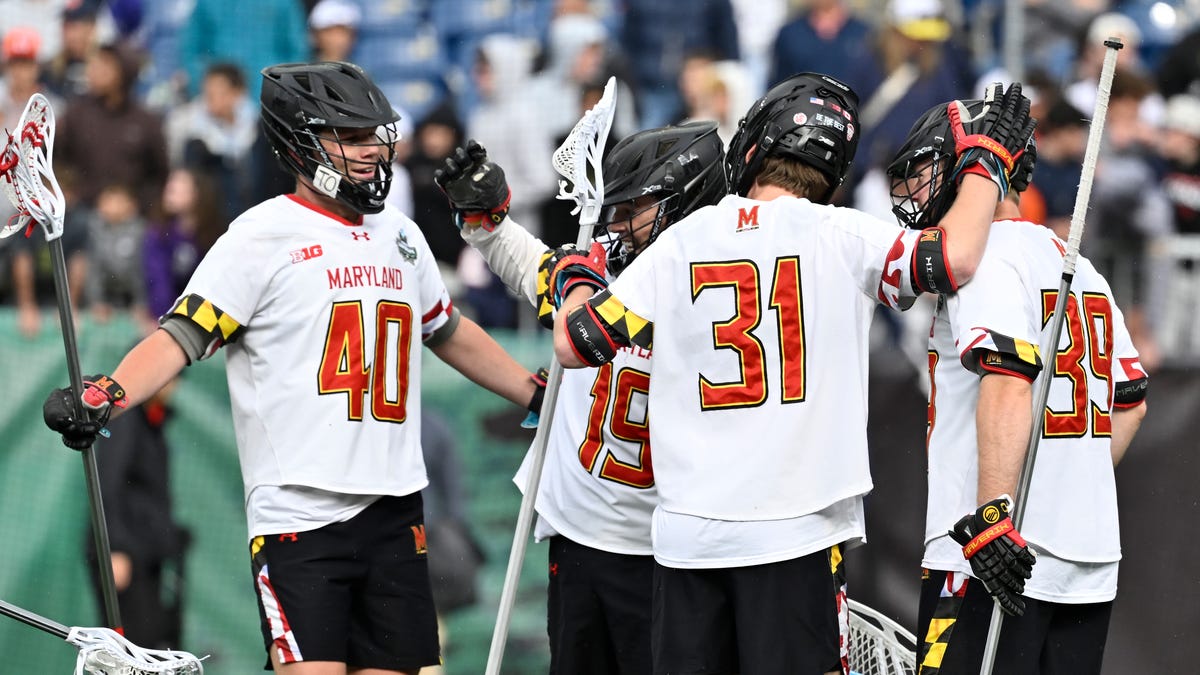
 Maryland1 week ago
Maryland1 week agoMaryland, Cornell to face off in NCAA men’s lacrosse championship game
-

 Technology1 week ago
Technology1 week agoThe oldest Fire TV devices are losing Netflix support soon
-
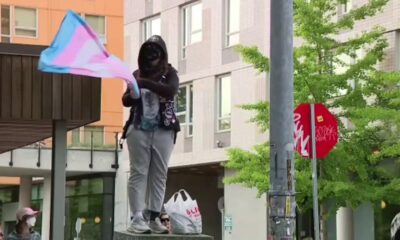
 West1 week ago
West1 week agoRiley Gaines says 'literal human feces' thrown in protest of Turning Point USA at University of Washington
-
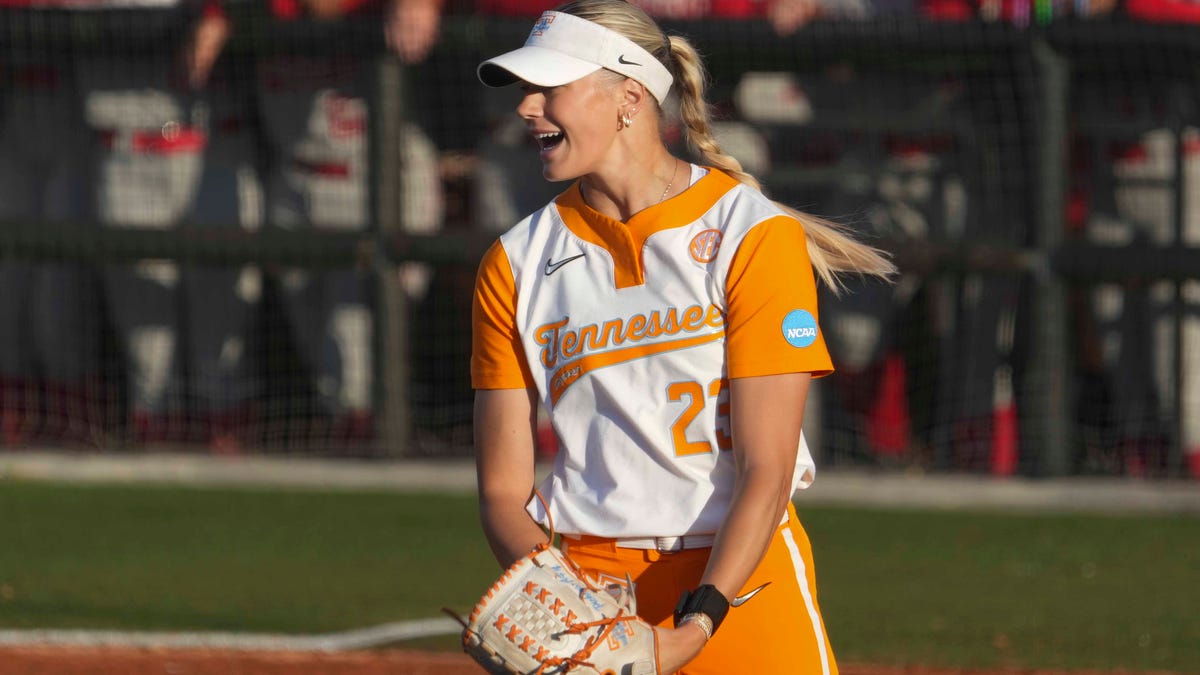
 Tennessee1 week ago
Tennessee1 week agoTennessee ace Karlyn Pickens breaks her own record for fastest softball pitch ever thrown
-

 World1 week ago
World1 week agoAustralia begins cleanup after floods kill 5, strand thousands




